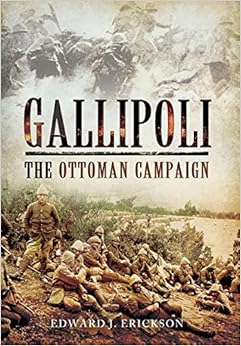Was Britain's Participation in WWI Justified?
By Andrew Wright
In the summer of 1914 Europe plunged into war. Isolated by the English Channel and protected by the much vaunted Royal Navy, Britain, as always, had the chance to decide whether or not to participate in the struggle. After the German invasion of Belgium, Britain decided to come to the aid of Belgium and France and subsequently declared war on Germany. During the next four years Britain would suffer horrendous casualties, lose much of her vast wealth, and surrender her paramount position as the leading power of the world. But does this mean it was a mistake for Britain to participate in the First World War? It is likely that without British intervention the Germans would have won the war and dominated the continent of Europe. England also had legal and moral obligations to her allies. Finally, while the Germans' conduct during the war never reached the brutal excesses of the Second World War, it can be argued that they were fighting an unjust war, both in their conduct, and in their aims. For strategic, legal and moral reasons, Britain's participation in the First World War was justified.
Britain's main weakness is her reliance on imports from across the seas. To protect her trade and defend herself from invasion, England has historically built and maintained a vast and powerful navy. To maintain supremacy, the small island nation has traditionally made sure her navy was at least superior to the next two dominant naval powers. However, even though Britain in 1914 was still the foremost naval power in the world, her level of dominance had been decreasing. The second most powerful navy at the time was the German High Seas Fleet. While Britain still had a comfortable lead over the Germans, the Royal Navy could not destroy the German fleet outright. Just by having the second strongest fleet, Germany was England's greatest potential threat.[1]
Germany's powerful navy guaranteed Britain's hostility. While it is undeniable that England was dependent upon her navy for survival, the purpose of Germany's High Seas Fleet is more suspect. As Winston Churchill, who was the First Lord of the Admiralty at the beginning of the war, remarked, "the British Navy is to us a necessity; the German Navy is in the nature of a luxury." It is true that Germany did have some colonies, and was reliant on trade, but by building such a powerful navy she alienated Britain. In fact it could be argued that this naval threat alone shifted England's animosity from her traditional colonial rivals, France and Russia, towards Germany, which was historically a very reliable ally. Britain tended not to care much about European affairs so long as there was a balance of power among nations, and as long as none of the powers tried to offset her naval supremacy.[2]
Britain has always been concerned with the balance of power in Europe. She has fought many wars on the continent in order to thwart nations that are bent on European domination. These wars include the war of the Spanish succession against Louis the 14th, the Napoleonic Wars, and the Second World War. Thus it can be argued that England joined the conflict in 1914 to reaffirm the European balance of power. Germany had established herself as the most powerful nation in Europe after her victory over the French in the Franco-Prussian War. Not only did she field the most powerful and trained army on the continent, she was also the most industrially advanced nation. Considering that during World War 1 Germany beat the Russians, brought the French army to mutiny, routed the Italians at Caporetto, nearly forced the British into the sea in 1918, and needed the combined industrial and economic weight of the United States to defeat her, proves Germany had what it took to dominate Europe.[3]
German military and industrial strength were a direct threat to Britain. Germany's strong army had the potential of overrunning Europe, and her navy was a threat to England's trade, if not her sovereignty. Once the Germans had invaded Belgium, the British were afraid of the consequences of Belgium and France collapsing and of the Germans seizing the Channel Ports. With these ports the Germans had the potential of raiding England's trade lines or invading the Island itself. Not since the Napoleonic wars had the English been faced with such a potential threat and they responded accordingly.[4]
Britain also had a legal case to justify going to war. In the Treaty of London of 1839, all the great powers of Europe, including Britain and Germany, were bound to respect the neutrality of Belgium, and if necessary, defend her from aggression. The Germans had requested that Belgium let their troops pass, and when her government refused, Germany invaded Belgium on August 4th, 1914. This was in defiance of the treaty, and in response Britain declared war on Germany. England also had alliances with France and Russia in all but name. While officially Britain was dedicated to maintaining her neutrality, in practice the British and French had made plans to coordinate their forces on the western front in the event of war. The British government and military had in fact planned for war with Germany with the writing of the famous "war book" that went into detail on how British Forces would be deployed to France. The Director of Military Operations, Major General Henry Wilson, had promised the French that in the event of war, England would come to her aid. Thus in 1914, England had legal and moral obligations to Belgium and her friends when they were attacked by Germany.[5]
Britain also had a moral case for war. In the aftermath of World War 2 the horrors of Nazism vastly overshadowed the less than reputable conduct of the Germans during the First World War. However, even before the outbreak of World War 1 there was a crime perpetrated by the Germans that foreshadowed the holocaust several decades later. In German Southwest Africa (today's Namibia), the Germans pushed the Herero people into the Omaheke desert and sealed off all exits. This along with other brutal campaigns in the German African colonies resulted in the deaths of as many 400,000 people. While the Germans did not commit such genocide during the First World War, they did little to stop their allies, the Ottoman Turks, when they committed one against the Armenian people. In fact, when asked how he would get away with killing Europe's Jews, Hitler remarked "Who, after all, speaks today of the annihilation of the Armenians?"[6]
German conduct during the war itself was quite questionable. They invaded neutral Belgium unprovoked and killed hundreds of Belgium civilians in dubious reprisal killings. They broke the laws of warfare when they unleashed poison gas in the Second Battle of Ypres, bombed British towns with ships and planes, and sunk merchant shipping (including that of neutral nations) with their unrestricted submarine campaigns. They plundered occupied territories, treated the inhabitants harshly, and scorched everything whenever they retreated. While there is no doubt that the allies exaggerated German atrocities, and German brutality never reached the horrors of World War 2, it can be argued that their Germans' conduct during World War 1 was less than civilized.[7]
The German aims of the war cannot be justified either. The Germans never fought to liberate any nations during the war; they conquered them. They conquered Belgium and part of France in 1914, Poland and Serbia in 1915, and Romania in 1916. Even while the Germans were desperately trying to subdue France in 1918, there were some 500,000 German troops on the Eastern Front swallowing up vast territories and resources that the Germans had successfully gained by signing the treaty of Brest-Litovsk that ended Russia's involvement in the war. Even though the Russians were clearly in no shape to threaten Germany by this time, the Germans were so greedy that they used vital troops that could have made all the difference in France to conquer half of Russia's industry, 90% of their coal and 50 million of its people. The way in which she plundered all her occupied territories and the fact it took all of Europe and the United States just to contain her, proves that Germany was not fighting a defensive war.[8]
By contrast Britain fought a predominantly just war. England had no territorial objectives in Europe and was fighting to free Belgium and other nations from German domination. It is true that she took many territories from the Ottoman Turks as well as some of Germany's colonies, but in general England was fighting to contain Germany, and Turkey had joined the war after Britain was already involved. Unlike Germany, who required most of the world to subdue her, Britain was very vulnerable and fought a defensive war. Germany's submarines nearly starved England of resources and only the Royal Navy stood in the way of a German invasion of England. In fact, Winston Churchill remarked of Lord Jellicoe, the commander of the Royal Navy, that he "was the only man on either side who could lose the war in an afternoon."[9]
Britain had a strategic, legal, and moral case for participating in World War 1. Germany was a direct threat to both Britain and the continent. Her navy threatened British sovereignty and her army had the potential to overrun Europe. Britain was obliged to help Belgium and her allies because of treaties and past assurances. Germany's conduct and war aims were unjust. They committed many atrocities, broke the rules of war and conquered and plundered many nations. Britain was fighting not only for her own survival, but for the rest of Europe's as well. Britain's participation in this war was not unjust and was not completely self serving. As in the Napoleonic Wars before it, and the Second World War afterwards, the British had little choice but to join in the conflict, or risk seeing the continent fall to a hostile power. It is time for both the public and the academic community to rise above the horrific casualties and war poetry to realize that England's participation in the First World War was not mistaken, nor in vain.[10]
| * * * |
Show Notes
| * * * |
© 2026 Andrew Wright
Written by Andrew Wright. If you have questions or comments on this article, please contact Andrew Wright at: auchinleck4ever@gmail.com.
About the author:
Please take the time to visit Andrew Wright's site at www.section117.com
About the author:
Andrew Wright is attending his second year at the University of Regina, majoring in History and minoring in Political Science. His hobbies include reading, writing, politics, history, Halo (X-Box) and other strategy games like Chess, Axis and Allies etc. He has lived in Regina, Saskatchewan, Canada most of his life, but have also lived in London England for a year and travelled around Europe including: United Kingdom, France, Germany, Holland, Belgium, Italy, Greece. He has an extensive military history book collection (500 or more books). He is the author of After Iraq: A Year in the Middle East.
* Views expressed by contributors are their own and do not necessarily represent those of MilitaryHistoryOnline.com.












